Public Notice
Hon'ble Civil Judge Rajiv Ranjan of Civil Court, Farrukhabad on 27th November 2015 passed an order vide wp no. 488/2015 and approved the present General Assembly of UCNI as the authentic and legal office and organisation to function and to look after the property of UCNI.
It has barred and warned these persons from doing any illegal activity.
They are:
- Michael S. Lal Agra Road,Eta
- Rabindra Francis, Shyamganj, Rajasthan
- Anjali Sing, Bada Bajar, Eta
- Afjal Choudhari, Ludhiana
- Dipak Da, Mainpuri
- B.M.Gujjar, Nagpur
- Y. Natram, Indore
- M.A.Kadam, Ahmednagar
- Rabi Khatriya, Ambala
- Abdul Karim, Jhansi
- R.R.Tomre
SUPREME COURT JUDGMENT
The Merger Story of CNI Collapsed
Sub: The order dated 30.9.2013 passed by the Honourable Supreme Court of India in a Civil Appeal No: 8800-8801 of the 2013 [Arising out of Special Leave Petition (Civil: Nos: 16575-16576 of 2012) with regard to the properties and assets of United Church of Northern India (UCNI) / United Church of Northern India Trust Association (UCNITA)/ COEMAR, etc.]
The judgment is announced on 30 September, 2013 in a case entitled Vinodkumar M. Malavia, etc. Appellants Vs. Maganlal Mangaldas Gameti & Ors. Respondents by honourable Justice Pinaki Chandra Ghosh and Justice Surinder Singh Nijjar.
Link to the webpage:
1. We, the United Church of Northern India (UCNI/UCNITA) have to draw the attention of the public about the passing of the judgment by the Honourable Supreme Court of India dated 30 September 2013 in the above Civil Appeal No: 8800-8801 of 2013, by which it is ruled by the Apex Court that the properties vested in six churches do not vest in the Association known as the Church of North India (CNI) / Church of North India Trust Association (CNITA). In the landmark judgment, the honourable Supreme Court of India dismissed the appeals of the CNI in which it had claimed that it had come into existence following the merger of six churches:
- Brethren Church of USA (and other churches being),
- The Council of the Baptist Church of North India,
- The Church of India, Pakistan, Burma and Ceylon,
- The Methodist Church (British and Australian Conference),
- The Methodist Church in Southern Asia and
- The United Church of Northern India (UCNI)
into a single entity.
Extract of paragraphs 16 and 17 of the judgment:
“…… The trust which has been created as public trust for a specific object and the charitable or the religious nature or for the bonafide of the Society or any such institution managed by such trusts for charitable and religious purpose shall continue to exist in perpetuity and it would not cease to exist by any such process of thinking or deliberation or Resolution, which does not have any force of law.”
“ …… the purported resolutions of the Church affiliated to the Brethren Church and merger thereof with appellant, having regard to the provisions of the Act was required to be done in consonance with the provisions thereof. It is not necessary for us to consider as to whether such dissolution of the Church and merger thereof in the appellant would amount to alienation of immovable property, but we only intend to point out that even such alienation is prohibited in law.”
2. In the light of the above, the Honourable Apex Court has ruled in that
“Merely by filing the Change Reports/s, CNI cannot claim a merger of Church and thereby claim that the properties vested in the Trust would vest in them.”
So, the Church of North India (CNI) cannot claim any title to any of the properties vested in the six Churches mentioned above. In this connection, we hereby advise the public that we have already issued a Public Notice recording the above in other states.=
3. Therefore, as per the order, the claim of the appellants that following unification of the First District Church of Brethrens (FDCB) with CNI after the purported resolution resulted in the dissolution of FDCB and making CNI its legal successor and controller of its properties, does not hold good and cannot be accepted. The High Court of Gujarat has rightly observed that:
“…… The trust which has been created as Public Trust for a specific object and the charitable or the religious nature or for the bonafide of the society or any such institution managed by such trusts for charitable and religious purpose, shall continue to exist in perpetuity and it would not cease to exist by any such process of thinking or deliberation or the Resolution, which does not have any force of law.”
Since the FDBC trust never stood dissolved, the properties of the same will not vest the CNI. Earlier also, this court in Church of North India (supra) has observed the same and stated that:
“…… the purported resolutions of the Church affiliated to the Brethren Church and merger thereof with the appellant, having regard to the provisions of the Act was required to be done in consonance with the provisions thereof. It is not necessary for us to consider as to whether such dissolution of the Church and merger thereof in the appellant would amount to alienation of immovable property, but we only intend to point out that even such alienation is prohibited in law.
4. In view of the judgment of the Honourable Apex Court, we have made necessary applications before the Honourable Bombay High Court for claiming back the properties which have been sought to be disposed off/dealt with by the trustees of the CNI and CNITA.
5. Various courts of India, viz Ludhiana, Ropar, Chandigarh, Hoshiarpur, Dasuya, Ambala, Moga, Firozpur and High Courts of Allahbad, Punjab and Haryana, Bombay (Case No: 4969/98 in Chamber summon 1573/2002 decided on 2 June, 2003) have already passed their verdict in favour of UCNI/UCNITA confirming our legitimacy
6. It s been informed that the representatives who are the members of the CNI claim to be the successors /trustees of UCNI and UCNITA. They are dealing with the properties of UCNI/UCNITA illegally. Under such circumstances the public are hereby cautioned that those who are dealing with CNI with regard to the properties concerned would do so at their own risk, cost and peril.
7. In case they have already entered into such contracts, they are hereby informed that all such transactions are subject to review under the rights of UCNI/UCNITA.
8. The Eastern Himalayan Church Council (EHCC) is the legal and authentic successors of the UCNI. Several court cases are pending in the Honourable High Court of Calcutta against CNI/ CNITA.


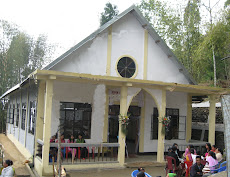





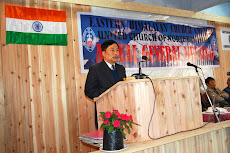







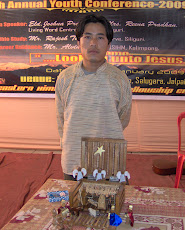











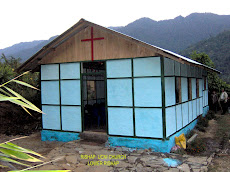


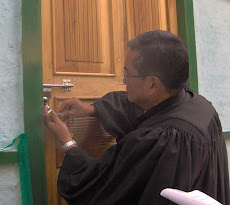





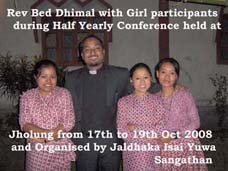



No comments:
Post a Comment